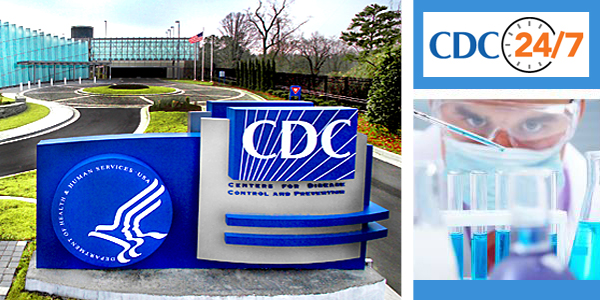New U.S Global Health Security Strategy Advances Commitment to Protect Americans and People Around the World from Emerging Health Threats

Advancing the Administration’s commitment to protect the American people from the next pandemic, the White House today released The United States Government Global Health Security Strategy (GHSS) 2024, which acknowledges that the United States and the international community can only achieve global, sustainable health security by working with all countries.
“Global health security is national security, and CDC is proud to contribute its expertise, investments and rapid response to protect the health and safety of the American people and the world,” said CDC Director Mandy Cohen, M.D., M.P.H, who spoke at today’s launch event. “CDC’s decades of global health investments, training and scientific diplomacy strengthen global capacity in labs, data, emergency response and the public health workforce. The U.S. is a safer place by allowing us to detect and rapidly respond to outbreaks at their source.”
As the strategy makes clear, health systems continue to be overburdened following years of responding not only to COVID-19 but a number of concurrent health emergencies, including mpox, Ebola, cholera, polio, dengue, and malaria. These outbreaks have weakened health systems, led to attrition among health workers, and set back efforts to address other challenges such as HIV and vaccine-preventable diseases (VPDs), like measles. The challenge of rebuilding health systems, however, also offers an opportunity to build greater resilience against future emergencies.
CDC Roles and Responsibilities
The GHSS delineates roles and responsibilities, which are reflective of the CDC’s core capacities as a science-driven leader in global public health. These are to:
- Implement and coordinate CDC programs to build capacity relevant to health security domestically and globally.
- Provide technical and scientific expertise in public health to partner countries, bilateral and multilateral institutions, and United States’ policymakers and leaders to achieve global health security goals.
- Provide technical and scientific expertise in public health to partner countries, bilateral and multilateral institutions, and US policymakers and leaders to assess and develop health security capacity and respond to health threats.
- Play a leading role, in conjunction with other relevant departments and agencies in addressing infectious disease outbreaks.
- Use data, modeling, and analytics to prevent, detect, and respond to outbreaks in real-time and to drive effective decision-making.
- Maintain staff internationally who advance collaboration with multisectoral partners and serve as a first line of defense against infectious diseases originating overseas.
Building on Decades of Global Expertise
While the strategy is new, CDC’s focus on building sustainable, resilient, country-owned health systems is not. Through large-scale initiatives like the U.S. President’s Emergency Plan for AIDS Relief (PEPFAR), CDC has long supported partner governments to address critical, immediate health needs and strengthen their ability to prevent, detect, and respond to emerging health threats through improvements in disease surveillance, laboratory networks, emergency management, and workforce development. Through its unique peer-to-peer relationships with ministries of health, its partnerships with non-governmental organizations and civil society, and staff in more than 60 country offices and six regional offices, CDC has not only been on the frontlines of efforts to control HIV, malaria, TB, and vaccine preventable diseases (VPDs), but has built global health security capacity at the same time.
For example:
- CDC works with countries to establish or strengthen their own national public health institutes (NPHIs) to protect community health and contain disease close to the source. Since 2011, CDC has helped develop and strengthen NPHIs in more than 40 countries.
- CDC’s flagship global program, the Field Epidemiology Training Program (FETP), trains a workforce of field epidemiologists (“disease detectives”) around the world building the necessary skills to collect, analyze, and interpret data and contribute to evidence-based decisions. Since the first FETP was established in Thailand in 1980, CDC has helped train more than 18,000 disease detectives in over 80 countries.
- Through CDC’s Public Health Emergency Management (PHEM) Fellowship, participants learn public health emergency management principles and gain a working knowledge of the functioning of an emergency operations center to better coordinate an effective response. The fellowship has trained 177 fellows from more than 45 countries and the African Union.
- In collaboration with several multilateral partners, CDC established the Global Laboratory Leadership Program (GLLP) to mentor current and emerging leaders to build, strengthen, and sustain national laboratory systems.
Consistent with this U.S. Global Health Security Strategy, CDC is continuing to leverage the agency’s global efforts to help build health security capacity. This includes through CDC’s new Global Health Strategic Framework that seeks to: stop health threats at their source before they spread to the United States; contain disruptive outbreaks; use global data for disease prevention and mitigation programs in the U.S.; and save lives and improve health globally.
The full strategy document can be found at United States Global Health Security Partnerships – United States Department of State.
